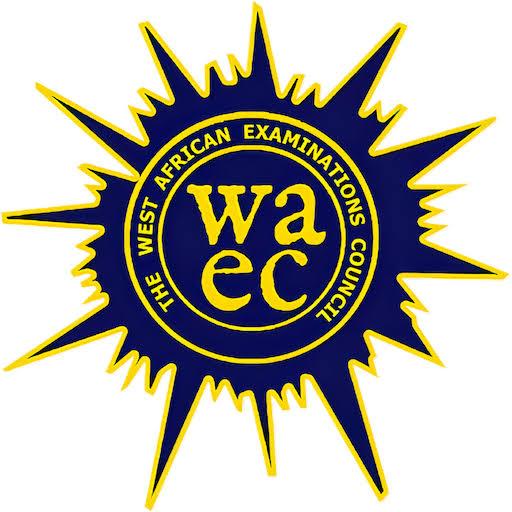Waec | Gce Mathematics Syllabus + Success Tips (2025/2026): Official Guide
Mathematics is a compulsory subject for all WAEC and GCE candidates. A solid understanding of mathematics not only guarantees exam success but also forms the foundation for courses in science, technology, economics, and business. This official guide covers the WAEC and GCE Mathematics syllabus for 2025/2026, exam format, success strategies, frequently asked questions (FAQs), and essential tips to help you pass mathematics easily.
WAEC | GCE Mathematics Syllabus (2025/2026)
Below is the official breakdown of the WAEC/GCE Mathematics syllabus:
1. Number and Numeration
| Topics | What to Focus On |
|---|---|
| Number Bases | Conversions, basic operations |
| Fractions and Decimals | Addition, subtraction, multiplication, division |
| Approximation | Rounding off, significant figures |
| Ratio, Proportion, Percentages | Simple and compound interest, profit/loss |
| Indices and Logarithms | Laws of indices, logarithmic calculations |
| Surds | Simplification of surds |
2. Algebra
| Topics | What to Focus On |
|---|---|
| Algebraic Expressions | Simplification, factorization, expansion |
| Linear and Quadratic Equations | Solving equations, completing the square method |
| Change of Subject | Rearranging formulae |
| Word Problems | Translating statements into algebraic expressions |
| Variation | Direct, inverse, joint variation |
| Graphs | Linear, quadratic, and simple exponential graphs |
3. Geometry and Trigonometry
| Topics | What to Focus On |
|---|---|
| Angles and Triangles | Properties, solving for angles |
| Polygons | Sum of interior and exterior angles |
| Circle Geometry | Chords, tangents, angles subtended by chords |
| Mensuration | Perimeter, area, volume of 2D and 3D shapes |
| Pythagoras Theorem | Solving right-angled triangles |
| Trigonometric Ratios | Sine, cosine, tangent, solving basic trigonometric problems |
4. Statistics and Probability
| Topics | What to Focus On |
|---|---|
| Data Collection | Types of data, methods of collection |
| Frequency Distribution | Tables, histograms, bar charts, pie charts |
| Mean, Median, Mode | Calculating measures of central tendency |
| Probability | Basic probability, outcomes, and events |
5. Sets and Logic
| Topics | What to Focus On |
|---|---|
| Set Notation | Union, intersection, complement, Venn diagrams |
| Logic | Simple statements, truth tables, logical reasoning |
WAEC | GCE Mathematics Exam Format
| Paper | Content | Duration |
|---|---|---|
| Paper 1 | 50 Multiple Choice Questions | 1 Hour 30 Mins |
| Paper 2 | Theory (Short and Long Structured Questions) | 2 Hours 30 Mins |
Top Success Tips for WAEC | GCE Mathematics Exam
| Success Tip | Why It’s Important |
|---|---|
| Master Basic Operations | Many questions are based on simple arithmetic |
| Solve Past Questions Regularly | Identify commonly asked questions |
| Practice Graph Drawing | Graphs are common in Paper 2 |
| Memorize Key Formulae | Helps solve geometry and algebra questions quickly |
| Time Yourself in Practice | Improves speed and accuracy under exam conditions |
| Focus on Weak Areas | Target difficult topics like trigonometry or probability |
| Show All Working | Marks are awarded for steps in Paper 2 |
| Use WAEC Recommended Textbooks | Books like New General Mathematics are helpful |
| Learn from Mistakes | Analyze wrong answers to avoid repeating them |
| Avoid Cramming | Focus on understanding problem-solving techniques |
FAQs About WAEC | GCE Mathematics Exam
1. How many papers are in WAEC Mathematics?
Two papers: Paper 1 (Objectives) and Paper 2 (Theory).
2. Can I pass WAEC Mathematics without using a calculator?
No. A basic scientific calculator is allowed and necessary for solving most problems efficiently.
3. Which topics repeat most often?
Geometry, trigonometry, algebraic expressions, and word problems are common in every exam.
4. Which textbook is recommended for WAEC Mathematics?
New General Mathematics for West Africa is the most recommended.
5. How do I pass WAEC Mathematics without fear?
Consistent practice, understanding concepts, solving past questions, and mastering time management.
Conclusion
Mathematics requires practice and understanding, not cramming. Focus on solving problems daily, understand formulas and concepts, and practice past WAEC questions to familiarize yourself with the exam style. Follow the official syllabus strictly and work systematically through each topic.
With dedication and strategic preparation, you can confidently target an A1 in WAEC or GCE Mathematics.










